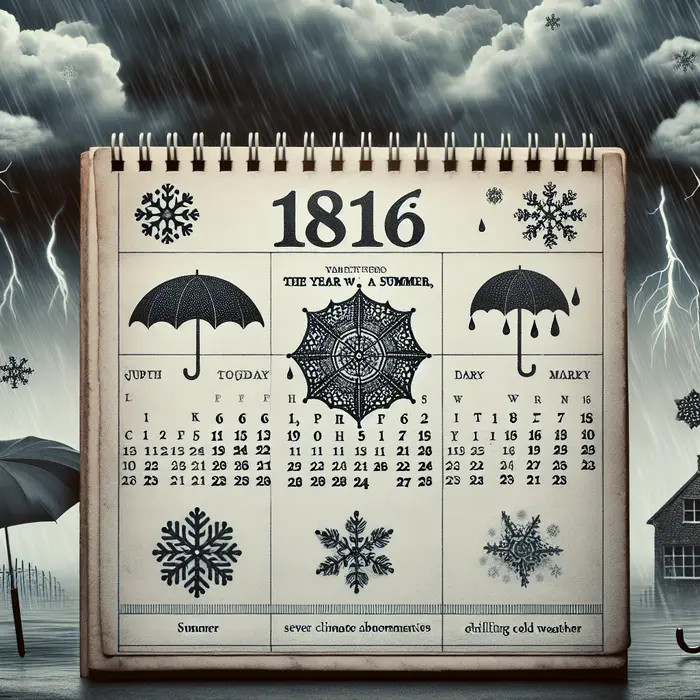1816: The Year the World Experienced a Summerless Season
The year 1816 is known as 'The Year Without a Summer' because of severe climate abnormalities.

The Year Without a Summer, also known as “Poverty Year” or “Eighteen Hundred and Froze to Death,” refers to 1816. This remarkable period was marked by significant weather abnormalities that caused average global temperatures to decrease by about 0.7-1.3°F (0.4-0.7°C). These unusual climatic changes resulted in major food shortages across the Northern Hemisphere.
Causes of Climatic Anomalies
This event has been widely attributed to the massive volcanic eruption of Mount Tambora in Indonesia in April 1815, which is considered one of the most powerful eruptions in recorded history. The eruption had an estimated Volcanic Explosivity Index of 7, indicating that more than 100 cubic kilometers (24 cubic miles) of tephra were thrown into the atmosphere. Following the explosion, thick clouds consisting mainly of ash and aerosols cloaked parts of Asia’s atmosphere for many months. These atmospheric particulates reflect sunlight into space and cool the planet’s surface.
Besides Mount Tambora, it is believed that there may have been three other large-scale volcanic eruptions worldwide between 1812 and 1814, further amplifying the cooling effect.
Impact on North America and Europe
In North America and Europe, regions significantly impacted by this phenomenon saw snowfall even during summer, such as June and July. Crops failed drastically due to unseasonable frosts and cold temperatures, leading to widespread starvation and riots in many areas. The agricultural collapse prompted mass migrations as people searched for food.
Socio-Cultural Developments
Surprisingly, the Year Without a Summer also led to interesting socio-cultural developments. Arguably, the most notable was the inception of the famous novel “Frankenstein.” Trapped indoors by constant rain and cold weather during a vacation in Geneva, authors Mary Shelley, Percy Bysshe Shelley, and Lord Byron decided to compete to write the best horror story. Under these conditions, Mary Shelley conceived her iconic character — Frankenstein.
Conclusion
The Year Without a Summer poignantly reminds us how natural events can dramatically alter human life on multiple fronts—from agriculture to culture. The catastrophic impact on food supplies led to social unrest and migration while fostering creative endeavors that left an indelible mark on literature.
